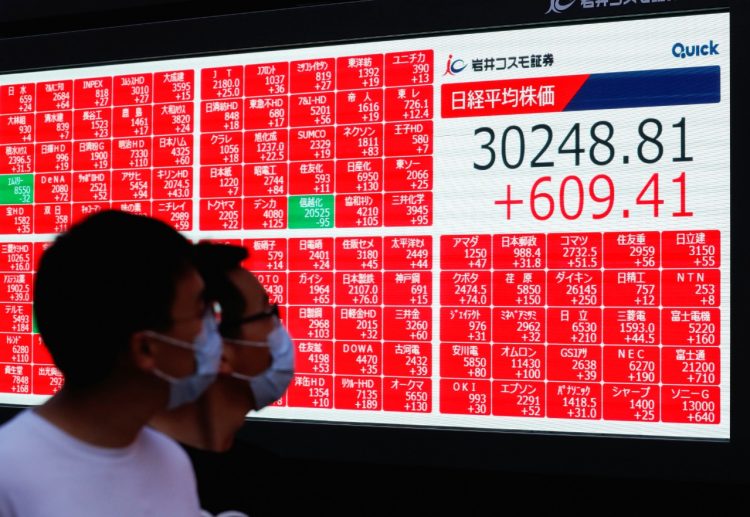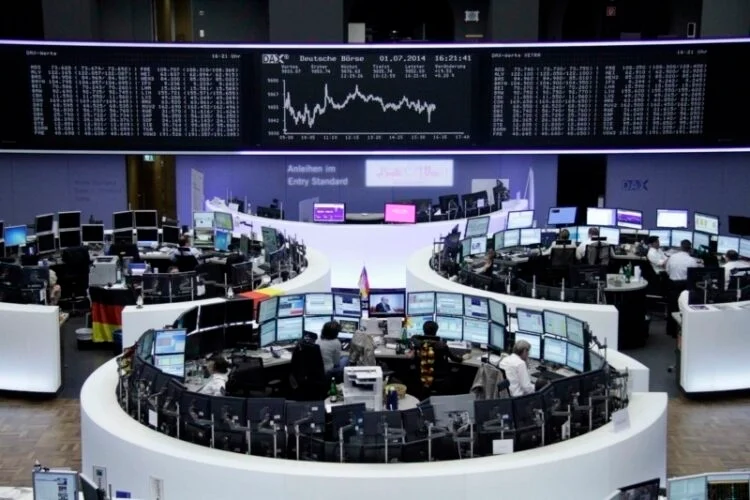Publisher: Maaal International Media Company
License: 465734
Tokyo shares fall, Hong Kong’s advance as tensions escalate in the Middle East
In Tokyo, the Nikkei 225 lost 1.7% to 37,993.18. It has retreated since the ruling Liberal Democratic Party chose Shigeru Ishiba to lead the government, replacing Fumio Kishida, who stepped aside on Tuesday. A weaker Japanese yen and higher energy prices would add to Ishiba’s burdens as he works to pep up the economy, AP reported.
The dollar was trading at 143.82 yen, up from 143.57 yen late Tuesday.
Hong Kong’s Hang Seng jumped 2.3% to 21,615.87, riding a wave of investor enthusiasm over recent moves by Beijing to rev up the Chinese economy with policies aimed at reviving the ailing property sector and supporting financial markets.
Australia’s S&P/ASX 200 was flat at 8,208.50 and the Kospi in Seoul lost 0.5% to 2,579.63.
On Tuesday, U.S. stocks retreated from their records, with the S&P 500 dropping 0.9% to 5,708.75. The Dow dropped 0.4% to 42,156.97, and the Nasdaq composite lost 1.5% to 17,910.36.
The price for a barrel of benchmark U.S. crude rose as much as 5% before settling 2.4% higher. Brent crude, the international standard, rallied 2.6%.
Early Wednesday, U.S. crude was up $1.15 at $70.98 per barrel. Brent crude climbed $1.10 to $74.66 per barrel.
On Tuesday, oil-and-gas producers logged some of the market’s biggest gains. ConocoPhillips rose 3.9%, and Exxon Mobil climbed 2.3%.
Most U.S. shares fell.
اقرأ المزيد
The all-time high that the S&P 500 set on Monday was its 43rd of the year so far. Stocks had been jumping on hopes the U.S. economy can continue to grow despite a slowdown in the job market, as the Federal Reserve cuts interest rates to give it more juice. The Fed last month lowered its main interest rate for the first time in more than four years, and it’s indicated it will deliver more cuts through next year.
The dominant question hanging over Wall Street is whether the cuts will ultimately prove to be too little, too late after the Fed earlier kept rates at a two-decade high in hopes of braking on the economy enough to stamp out high inflation.
A discouraging report arrived Tuesday, showing U.S. manufacturing weakened by more in September than economists expected.
Another threat to the economy could lie in a strike by dockworkers at 36 ports across the eastern United States that could snarl supply chains and drive up inflation.
The workers are asking for a labor contract that doesn’t allow automation to take their jobs, among other things. Supply chain experts say consumers won’t see an immediate impact because most retailers have stocked up on goods, moving ahead shipments of holiday gift items.








